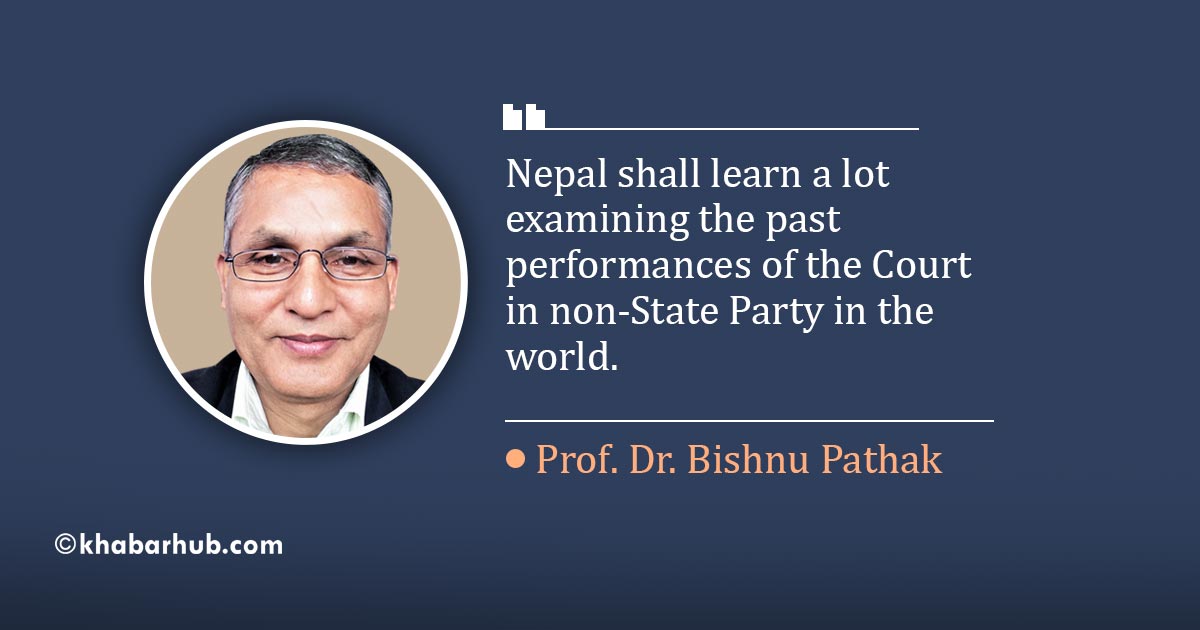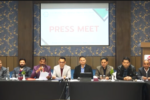Child soldiers are children under the age of 18 who are recruited by armed organizations, ie, state-and-non-state forces. Children are widely trained for informants or spies, porters, messengers, sentries, cooks and for sexual purposes and often used as human shields for tactical benefit in political propaganda.
Children easily trap appealing for the hope of a better future (education, money, security and prestige) and targets for military recruitment owing to their grater defenselessness to influence compared to grown-ups. A girl child is ever at high risk of rape, other forms of degrading treatment and such children who have had pregnancies or babies are often rejected by their own families or communities.
In recent Nepal, child soldiers (Discharged People’s Liberation Army in early 2011) put forwards of their issue of livelihood supports in fore-front-line and are succeeded to attract civil society and media.
Such forms rob their childhood and depict dreadful risks through the psychological, physical and sociocultural sufferings.
In recent Nepal, child soldiers (Discharged People’s Liberation Army in early 2011) put forwards of their issue of livelihood supports in fore-front-line and are succeeded to attract civil society and media. Their voices are heard nationally and internationally while a former child soldier visited Europe and discussed with the officials of the International Criminal Court (ICC) and among other pertinent institutions and actors.
To file a case in the Hague (ICC) against the former Maoist leaders has been a much-debated issue right now in Nepal and abroad. It means Nepal’s former child soldier is still less attentive but has been an international issue.
Establishment of the Court
The International Criminal Court, entry into force on July 1, 2002, is the world’s first permanent body that puts on trial to suspected individuals of alleged crimes. The objective of it is to investigate, prosecute and punish the perpetrators on international concerns: genocide, crimes against humanity, war crimes and crimes of aggression.
The ICC aims to end global impunity ensuring justice to victims/survivors making perpetrators accountable for their crimes and preventing these crimes from repeating again. The ICC complements to national Courts that governs by an international treaty, the Rome Statute.
Situation referring by the Court
The ICC performs its tasks in 27 countries: investigations in 10 countries, preliminary examinations continue in 11 countries and preliminary examinations completed in 7 countries till the mid of September 2019. Countries under investigations are Burundi, Central African Republic, DR Congo, Georgia, Ivory Coast, Kenya, Libya, Mali, Sudan (Darfur) and Uganda.
Before the formation of the ICC, a temporary judicial body named International Criminal Tribunal (ICT, recognizes as ‘UN Court of Law’) was to be formed focusing to specific country’s crimes.
The preliminary examinations completed in Afghanistan, Cambodia, Comoros, Greece, Honduras, South Korea and Venezuela (II) but have been conducting in Afghanistan, Bangladesh/Myanmar, Colombia, Gabon, Guinea, Iraq/UK, Nigeria, Palestine, Philippines, Ukraine and Venezuela (I).
A total of 44 suspected individuals are indicted by the Court until September 2019. Out of 44 persons, proceedings against 22 have been completed: the charges of six were dismissed; two are serving; four finished their sentences; two are acquitted; the charges of two were withdrawn; two have declared inadmissible, and four have died before trial. Only six persons are under detention; 15 are as fugitives, and one is under arrest.
Nepal is not a State Party to Rome Statute, but the Court shall work even in non-State Party. Nepal shall learn a lot examining the past performances of the Court in non-State Party in the world.
Justice by the Tribunal
Before the formation of the ICC, a temporary judicial body named International Criminal Tribunal (ICT, recognizes as ‘UN Court of Law’) was to be formed focusing to specific country’s crimes. In 1999, Yugoslavian President Slobodan Milosevic was charged with crimes in Kosovo and became first sitting Head of State by the ICT.
While he resigned from the President, he was arrested on March 2001 on the charges of corruption and abuse or misuse of power. Milosevic denounced to ICT as illegal body that was formed without the consent of the UN Security Council.
In March 2006, he died in his prison cell in the lack of medicines, but people had collected one billion dollars for his treatment. The Tribunal officially closed in 2017.
Against the 800,000 people’s genocide in Rwanda in a year in 1994, the UN Security Council established the ICT as the Court of Justice which indicted 93 policy makers-individuals of superior responsibility including Prime Minister Jean Kambanda.
On October 19, 2000, his verdict was upheld by the ICTR through Appeal Chamber. The Tribunal was officially concluded in December 2015 and he is currently in Prison in Mali.
Situation Referring to Court by UNSC
While 300,000 people were extrajudicially killed between 2003-2008 in non-State Party Darfur (Sudan), crimes were referred to the ICC first time by the UN Security Council. The Pre-Trial Chamber of the Court issued the warrants of arrest to senior Ministers including State-Head President Omar Al Bashir.
However, all remain at large fugitives. The Chamber asked cooperation to UN Security Council to bring them under Court’s jurisdiction, but in vain. Thus, the Court could not move ahead for further investigation.
Libya is not a State Party to the Rome Statute. But, in February 2011, the UN Security Council referred the situation to exercise ICC’s jurisdiction over the crimes in Libya. In June 2011, the ICC issued warrants of arrest to senior-most authorities including outgoing Head of the State Muammar Gaddafi.
However, he was assassinated by the agitators and his case was dismissed. Gaddafi’s associates are now recognized as fugitives.
Jurisdiction on Transnational Crimes
Besides, international crimes, the ICC also investigate the Transnational (cross-border nature) crimes. Cross-border crimes take place in a non-State Party, but their consequences substantially affect another State-Party country: Myanmar/Bangladesh and Syria/Jordan.
About 750,000 Rohingya fled from non-State Party Myanmar to the territory of State Party Bangladesh. Taking permission from the Pre-Trial Chamber of the ICC in June 2019, the Prosecutor investigates atrocities against Rohingya Muslim minority of Myanmar.
Contrary to 360,000 people killed and millions displaced, human rights lawyers filed the first case against (non-State Party) Syrian President Bashar al-Assad at the ICC on behalf of 28 Syrian refugees residing in Jordan (State Party) in March 2019.
Lawyers have given a precedent set by the Court ruling on Rohingya refugees in Bangladesh. Russia used its 12th-time veto powers till April 2019 at the UN Security Council for not to have Court’s referral to its Syrian ally.
(To be continued…)
Views expressed in this article are the author’s own and do not necessarily reflect the stance of Khabarhub.









Comment